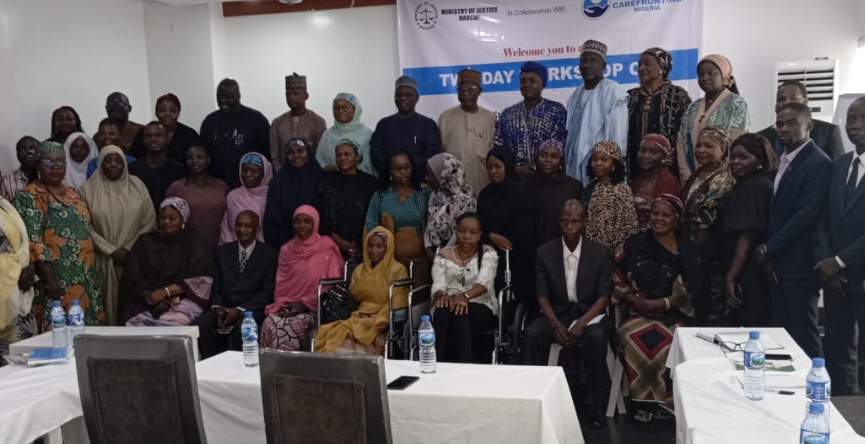By Ahmed Ahmed
A two-day workshop on strengthening frontline support for sexual and gender-based violence (SGBV) survivors has underscored the critical need for psychosocial support in the criminal justice system.
Barrister Ibrahim Yakubu Umar, former Attorney General and Commissioner of Justice in Bauchi State, delivered a keynote address at the workshop.
He emphasized that victims of SGBV are often overlooked in the criminal justice process.
“Psychosocial support is a huge issue in our criminal justice system,” Umar noted. “Victims are always considered last.
“We need to create a legal and institutional framework that prioritizes their well-being.”he said
Umar criticized the current social welfare system, citing its ineffectiveness at the local government level.
“The State has a ministry of Social Welfare, but how social is this ministry that lacks presence at the local government level?
“We must be deliberate in taking steps to address these issues,” he said.
Barrister Saratu Andrew Haruna, Chief State Counsel, Ministry of Justice, shared her personal experience with SGBV.
“I witnessed the rape of a 4-year-old girl by a 50-year-old man. It’s an experience I’ll never forget.” She said
Dr. Jamila Mohammed Mohammed, State Commissioner of Education, highlighted the education sector’s critical role in addressing psychosocial support.
“We’ve established second-chance learning centers and safe spaces for girls in communities.” She said
Deborah Tabara, UNFPA Gender and Reproductive Health Analyst, emphasized the organization’s commitment to zero tolerance for SGBV, zero unmet need for family planning, and zero maternal deaths.
Moji Iheme, Executive Director of Kairos Initiative, commended the workshop organizers and pledged her organization’s support.
Bashir Ahmed, representative of the Bauchi State Office of Sustainable Development Goals, noted that the workshop aligns with Goal 16, promoting peace, justice, and strong institutions.
The workshop concluded with a call to action, urging stakeholders to prioritize psychosocial support for SGBV survivors and address the systemic gaps in the criminal justice system.





